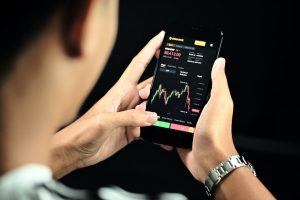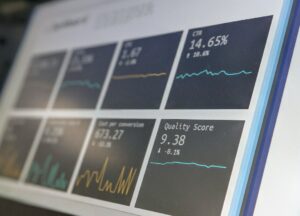The Role of Technology in Forex Trading: Insights from Banks
Forex trading, also known as foreign exchange trading, is the buying and selling of currencies in the global market. It is the largest and most liquid financial market in the world, with an average daily trading volume of over $6 trillion. In recent years, technology has played a significant role in transforming the way forex trading is conducted, particularly in the banking sector. In this article, we will explore the various ways in which technology has revolutionized forex trading, based on insights from banks.
1. Electronic Trading Platforms:
One of the most significant advancements in forex trading technology is the development of electronic trading platforms. These platforms have replaced traditional manual trading methods, allowing traders to execute trades electronically, without the need for physical interaction. Banks have embraced these platforms to provide their clients with instant access to forex markets, enabling them to trade currencies at any time, from anywhere in the world. Electronic trading platforms have improved efficiency, transparency, and speed, resulting in increased liquidity and tighter spreads.
2. Algorithmic Trading:
Algorithmic trading, also known as automated trading or black-box trading, refers to the use of computer algorithms to execute trades based on predefined instructions. Banks have heavily invested in algorithmic trading systems, which can analyze vast amounts of data and execute trades at lightning-fast speeds. These systems can take into account multiple factors, such as market conditions, economic indicators, and technical analysis, to generate trading signals. Algorithmic trading has significantly reduced the impact of human emotions on trading decisions and has allowed banks to execute trades with precise timing and accuracy.
3. High-Frequency Trading:
High-frequency trading (HFT) is a subset of algorithmic trading that involves the use of sophisticated algorithms and high-speed data connectivity to execute a large number of trades in fractions of a second. Banks have been at the forefront of HFT, leveraging cutting-edge technology to gain a competitive edge in the forex market. HFT has revolutionized forex trading by increasing market liquidity, narrowing bid-ask spreads, and reducing transaction costs. However, it has also raised concerns about market manipulation and volatility.
4. Big Data and Artificial Intelligence:
Banks are harnessing the power of big data and artificial intelligence (AI) to gain insights into forex market trends and make informed trading decisions. By analyzing vast amounts of historical and real-time data, AI-powered systems can identify patterns, correlations, and anomalies that may not be apparent to human traders. These systems can also adapt and learn from new data, continuously improving their trading strategies. Big data and AI have revolutionized risk management, allowing banks to identify potential market risks and mitigate them proactively.
5. Risk Management Systems:
Effective risk management is crucial in forex trading, given the volatile nature of the market. Banks have developed sophisticated risk management systems that use advanced technology to monitor and manage market risks in real-time. These systems can analyze multiple risk factors, such as exchange rate fluctuations, market liquidity, and counterparty risks, to determine the potential impact on trading portfolios and take necessary actions to mitigate risks. Risk management systems have become essential tools for banks to protect their clients’ investments and maintain regulatory compliance.
In conclusion, technology has had a profound impact on forex trading, particularly in the banking sector. Electronic trading platforms, algorithmic trading, high-frequency trading, big data, artificial intelligence, and risk management systems have transformed the way banks trade currencies. These technological advancements have improved efficiency, transparency, and speed in forex trading, resulting in increased liquidity and tighter spreads. While technology has undoubtedly brought significant benefits to forex trading, it also poses challenges such as market manipulation and increased volatility. As technology continues to evolve, it will be interesting to see how banks adapt and leverage new innovations to stay ahead in the highly competitive forex market.





